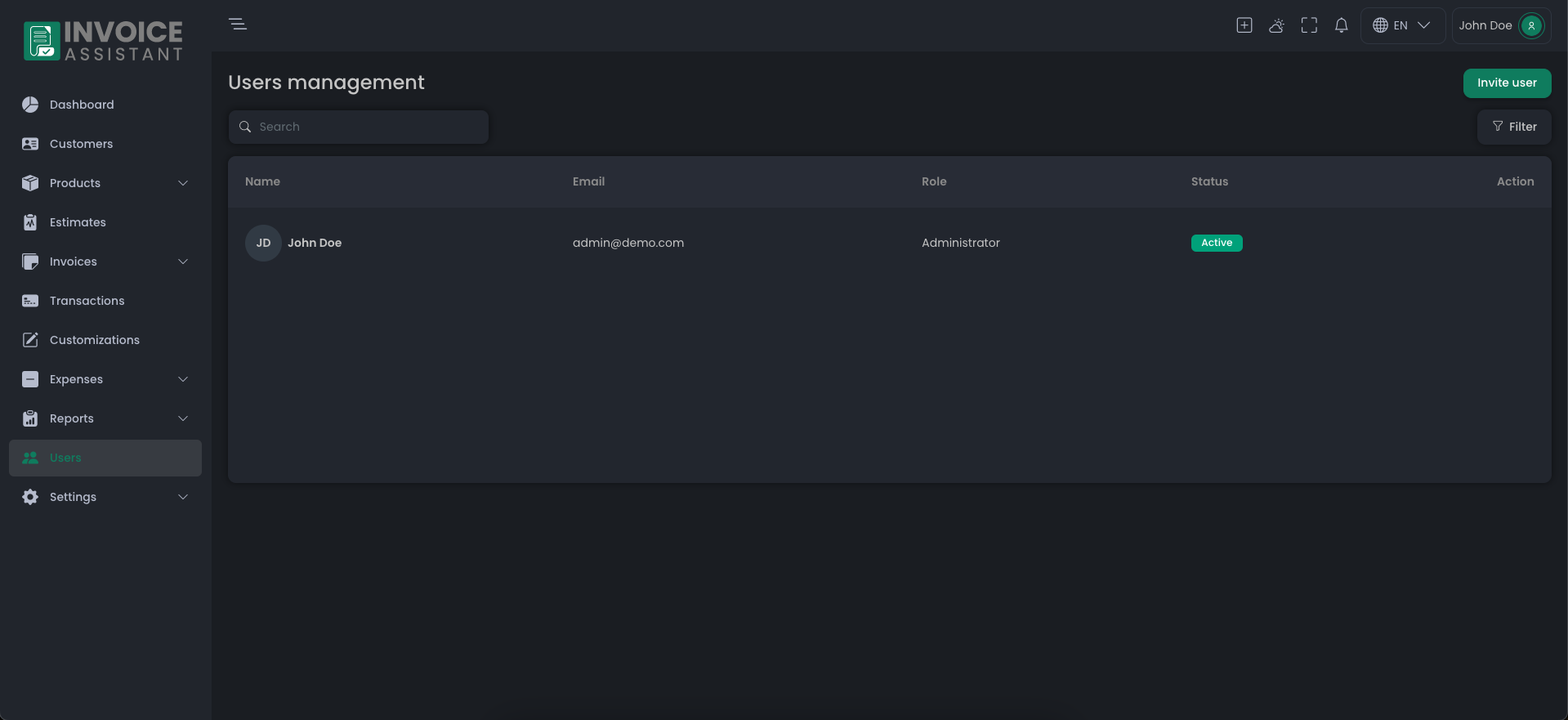Resources/Key Features
Dashboard
Strong administrative dashboard where admin can observe the overall application, what's happening and the following information:
- Total Amount
- Total Paid
- Total Due
- Total Customer
- Total Product
- Payment Overview [Due & Received amount]
- Income Overview [Last 7 days. this week, last week, This month, This year, Total]
- Income Expense Overview [Last 7 days. this week, last week, This month, This year, Total]

Customers
Managing your Customers is very easy and intuitive. From
the admin panel, you may add Customers. Allow access to
their own panel where they can view the assigned invoice
and take corresponding actions.
From this page, you are able to view and do the
following:
- Add a customers with their billing address
- Edit an existing Customers account
- Delete a client account
- Filter clients, using a detailed filter panel.

See the most important summary information about your customers & Each customer Total Invoice Amount, Total Paid & Total Due amount.

Products
You can choose where to build your products, which will then be utilized to make invoices. You can add product categories and units before adding a product. You can set the pricing and other relevant details as well.

Estimates
One of the three pre-made templates can be applied when creating an estimate. You can add multiple taxes to the estimate.
Once an estimate is created you can edit, view or mark it as sent. A produced estimate can also be turned into an invoice.
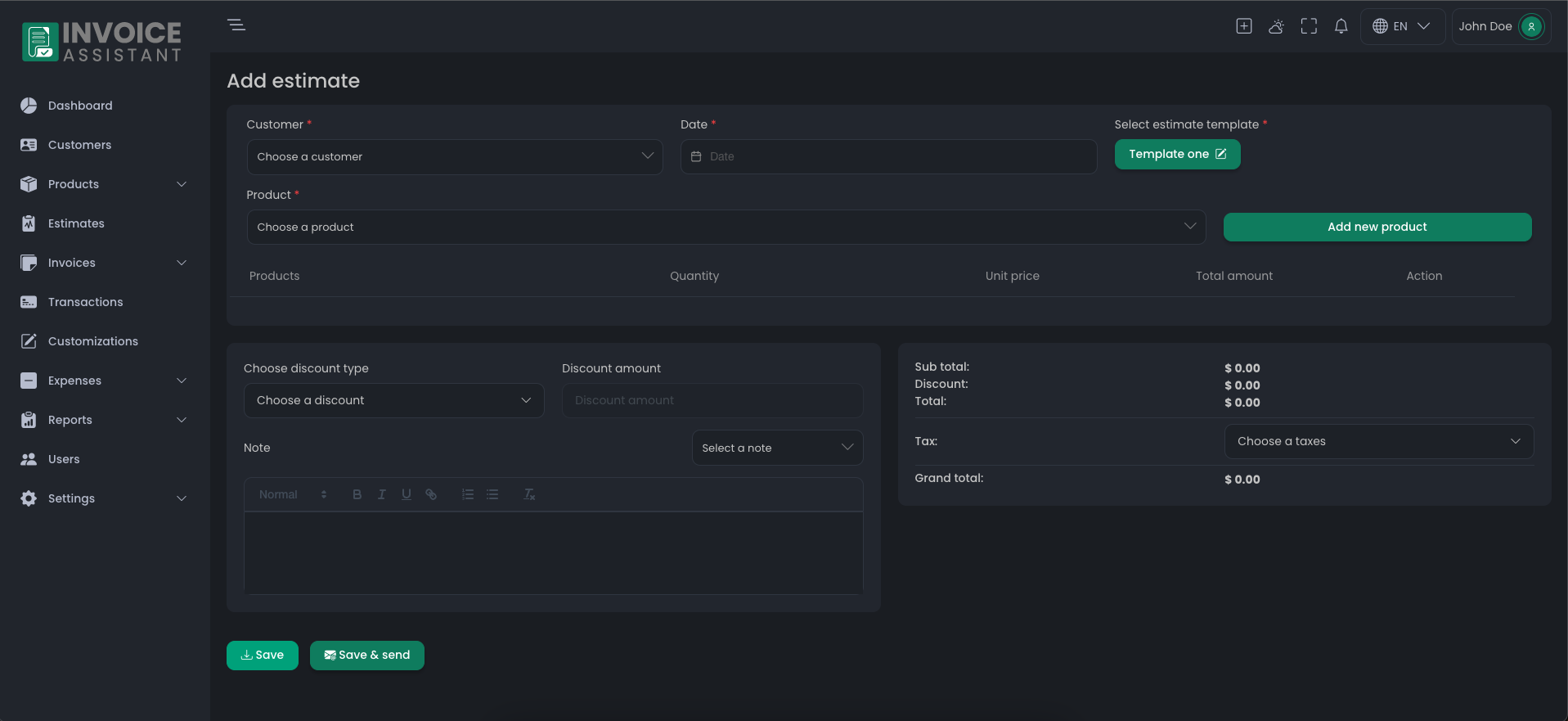
List Estimates
All created estimates are shown on the Estimates page and you can easily edit or delete them as well. You can also use filters to quickly search for a particular estimate by its customer, status, date and number.
You choose to send an estimate directly from the application or mark the estimate as sent. You can also manually mark the estimate as Accepted or Rejected.
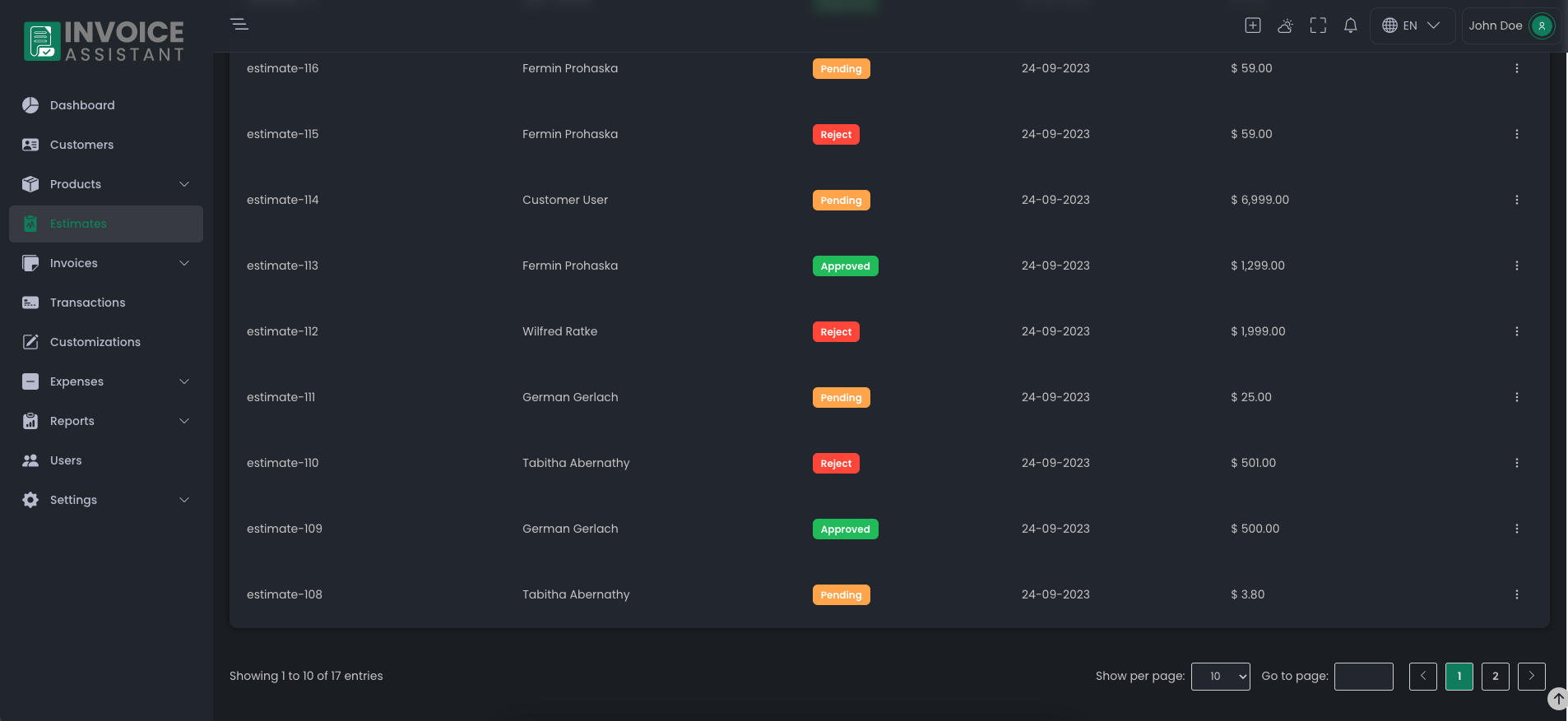
Estimate Lifecycle
Below are the different statuses of an estimate:
Pending: Estimate has been
created but hasn't been sent to the customer.
Approved: Estimate has been
approved by the customer [Manually]
Rejected: Estimate was
rejected by the customer [Manually]
Invoice
Using one of the three already-made templates, an invoice may be prepared. You can add multiple taxes to the invoice. Additionally, you can offer a percentage-based or fixed-value discount to your customers.
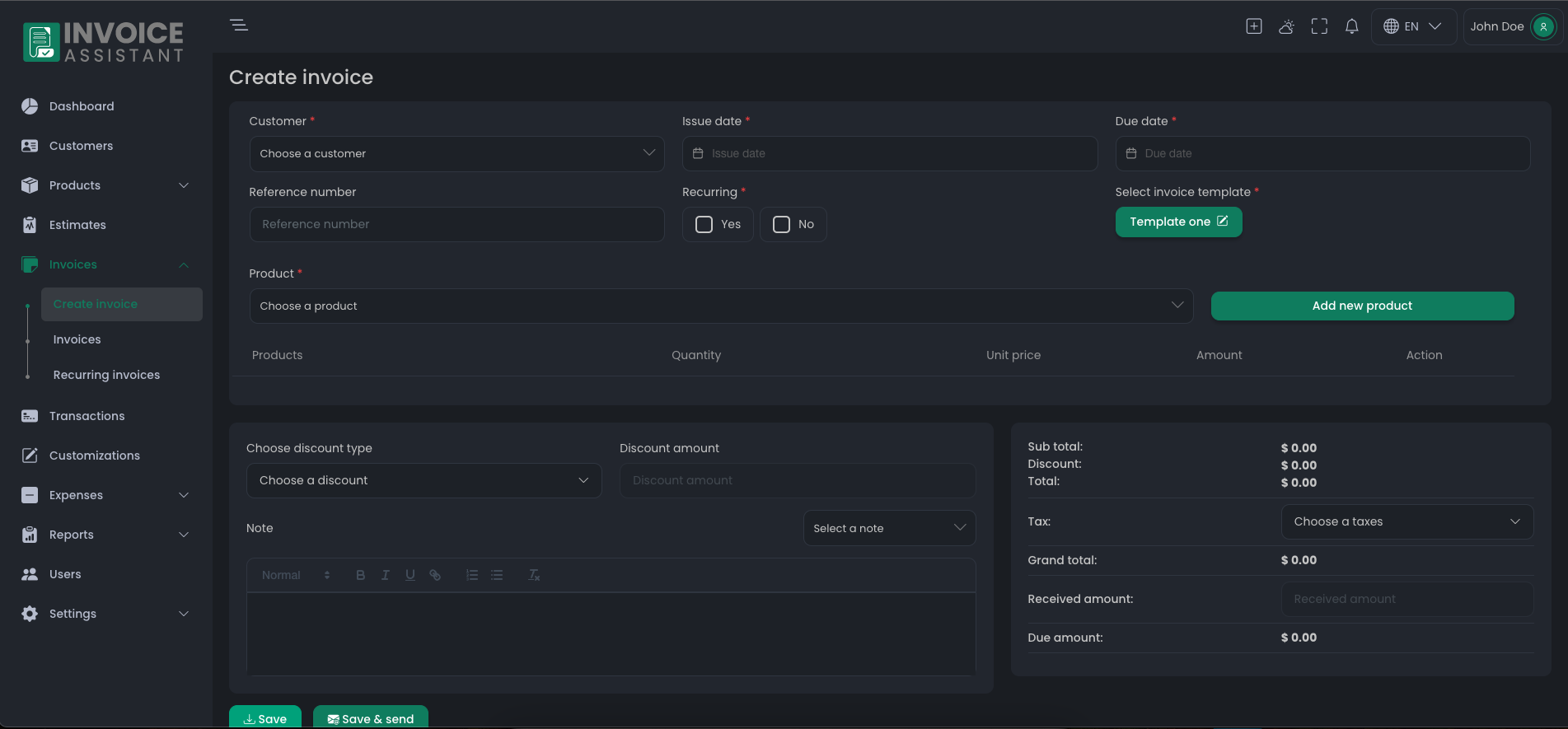
Invoice Lifecycle
Below are the different statuses of an invoice:
Paid: Invoice has been
fully paid.
Due: Invoice has been
generated and partially paid. also viewed by the
customer.
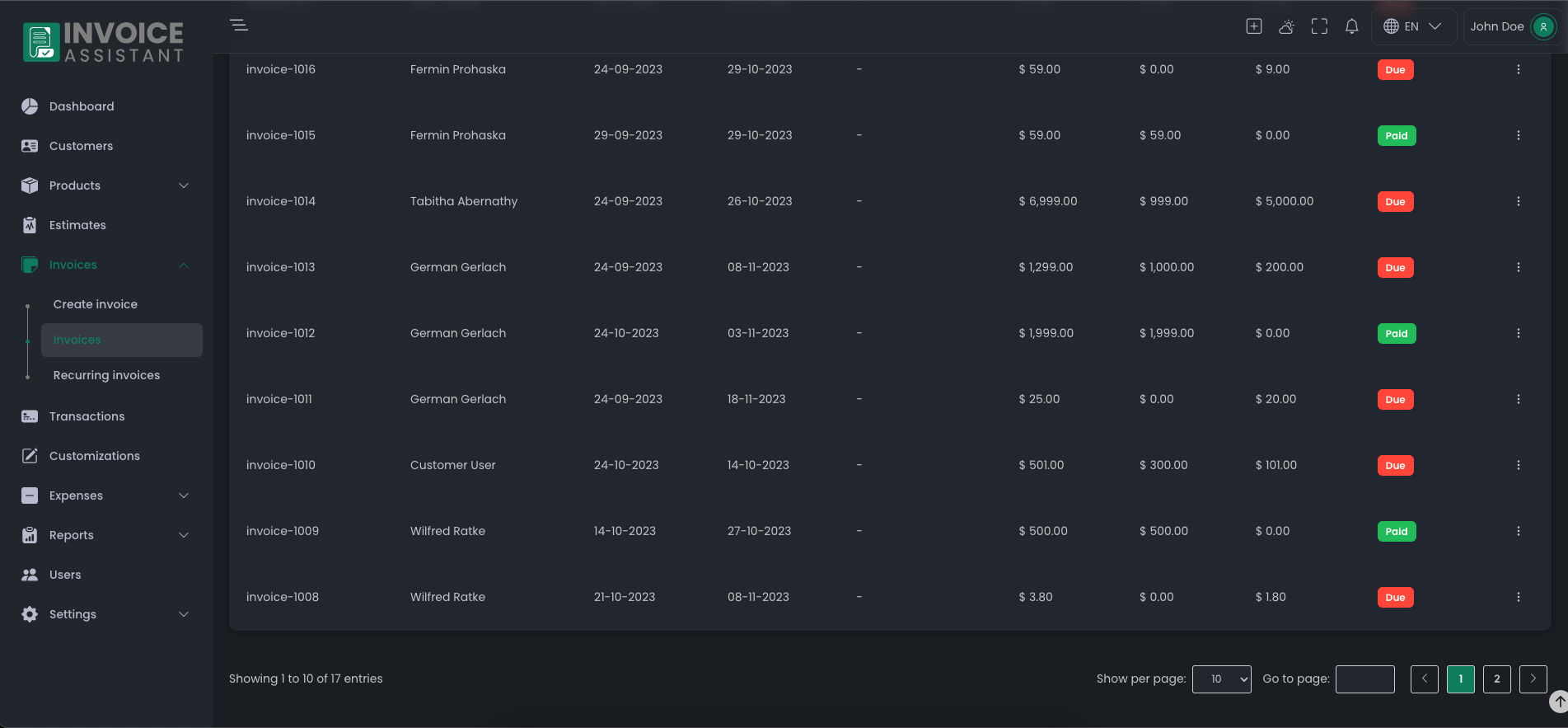
Recurring Invoices
Recurring Invoices are for automatically creating invoices on a given schedule & limit. If you have a customer whom you're regularly billing the same invoice regularly then you can use this feature to automatically create and send the invoices.
By default, it's set to Weekly, but you can change to monthly, yearly.
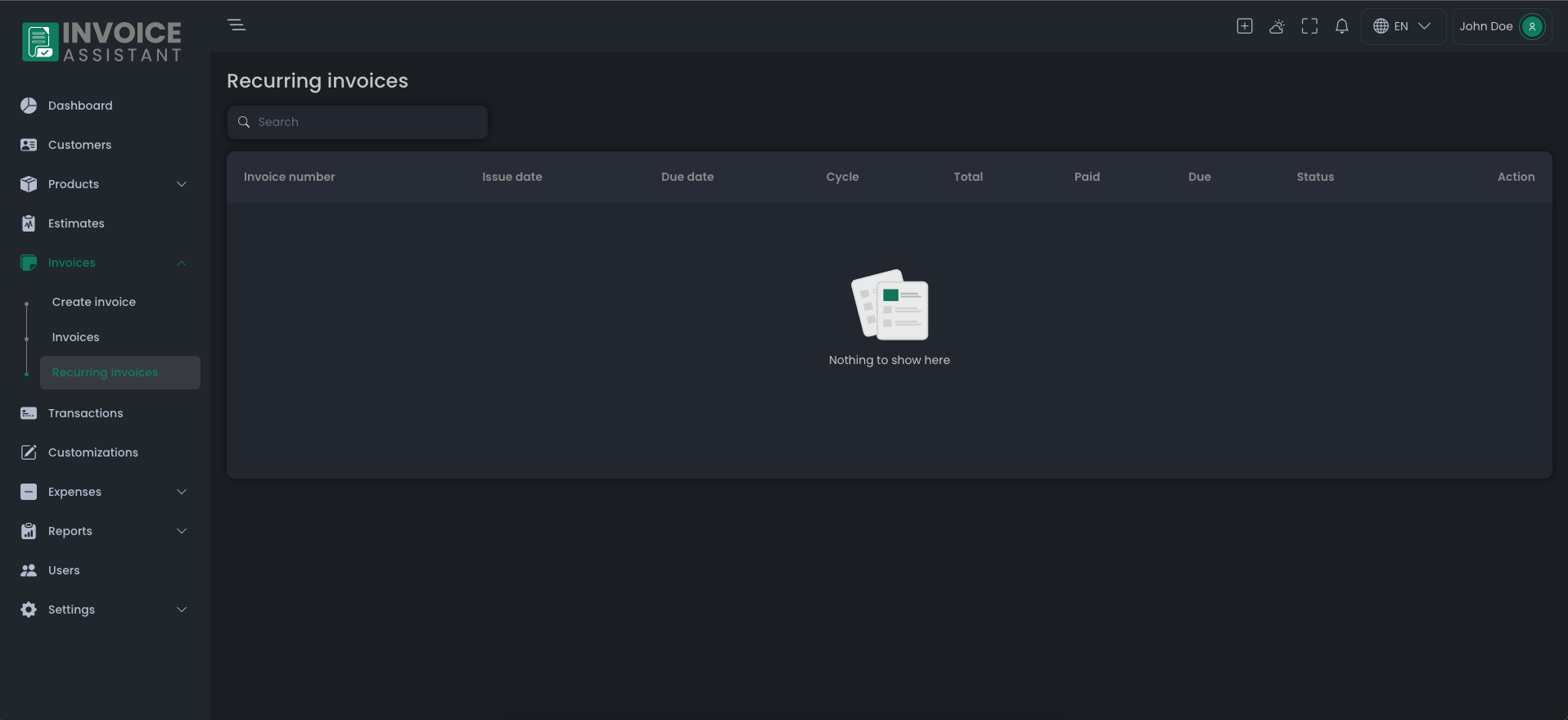
Transaction list
All the invoice transactions will be listed here, either it will be manually or via PayPal. you can see the detailed information here.
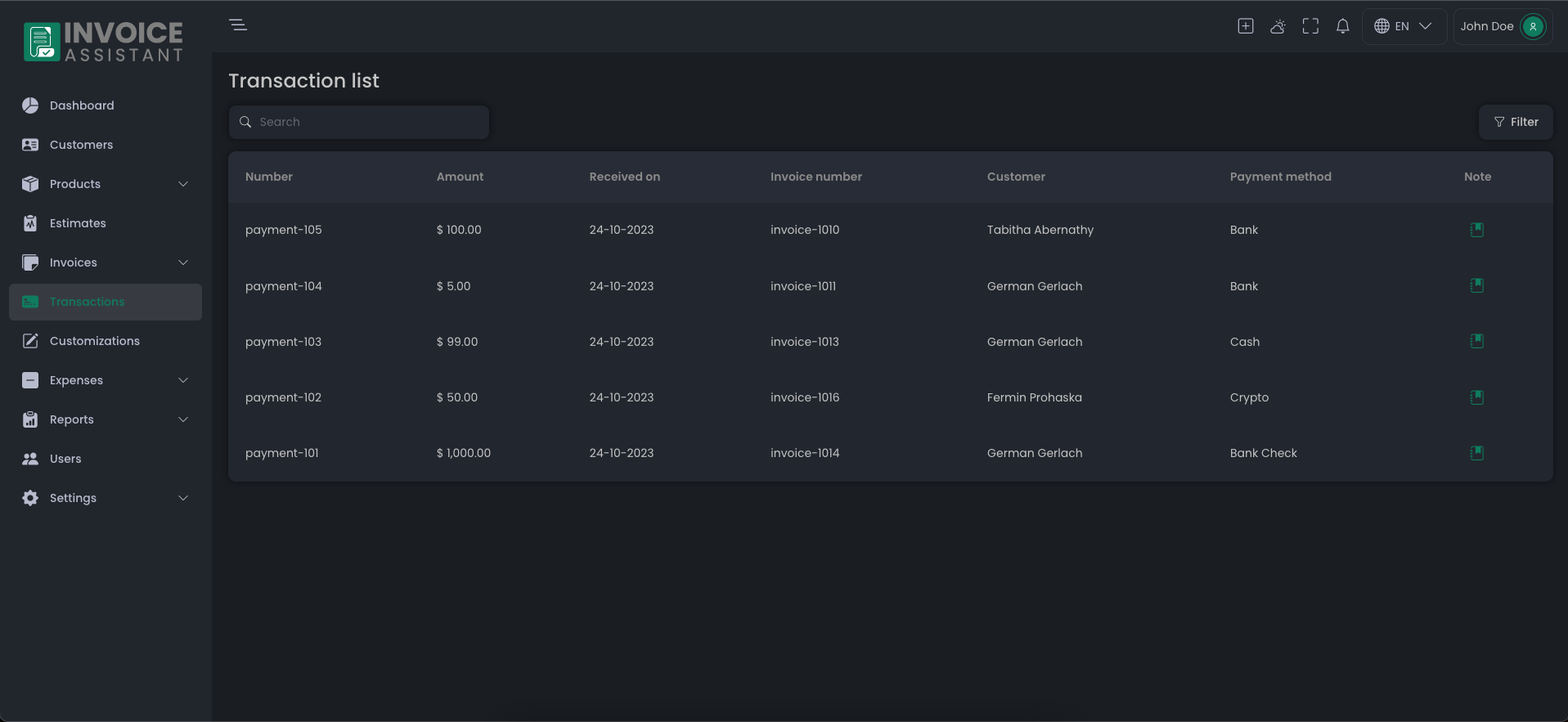
Expenses
You can add new expense entry by selecting a category, date, amount, note, reference no, and attachments. Optionally you can also specify a note or upload a receipt with it.
All created Expenses are shown on the Expenses page and you can easily edit or delete them as well. You can also use filters to quickly search/filter for a particular expense by its category or date.
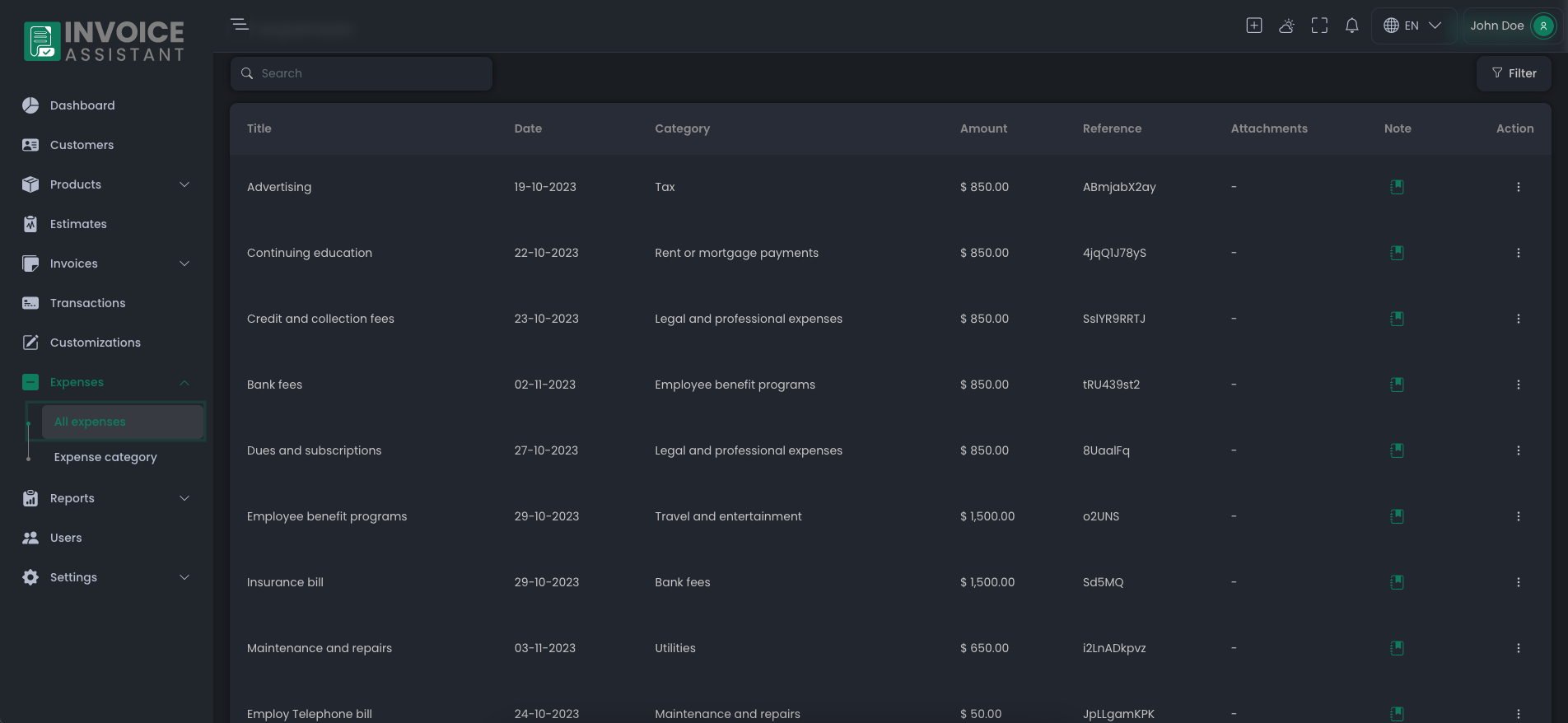
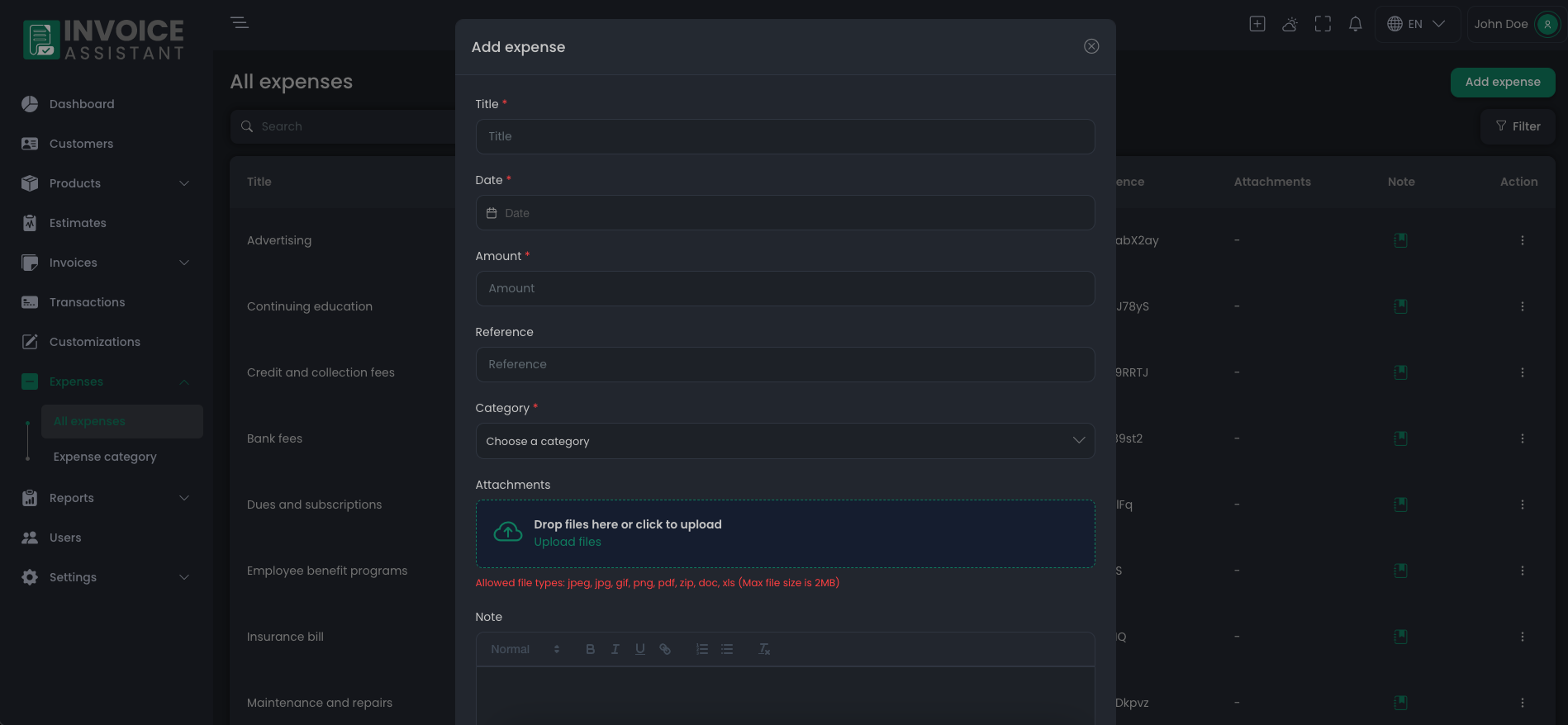
Reports
There are different types of reports that can be used to generate a document that gives your finances.
Payment report
Using this report, you can get a detailed overview of your payment for a particular date-range.
Filter report by customer-wise, date range and payment methods.
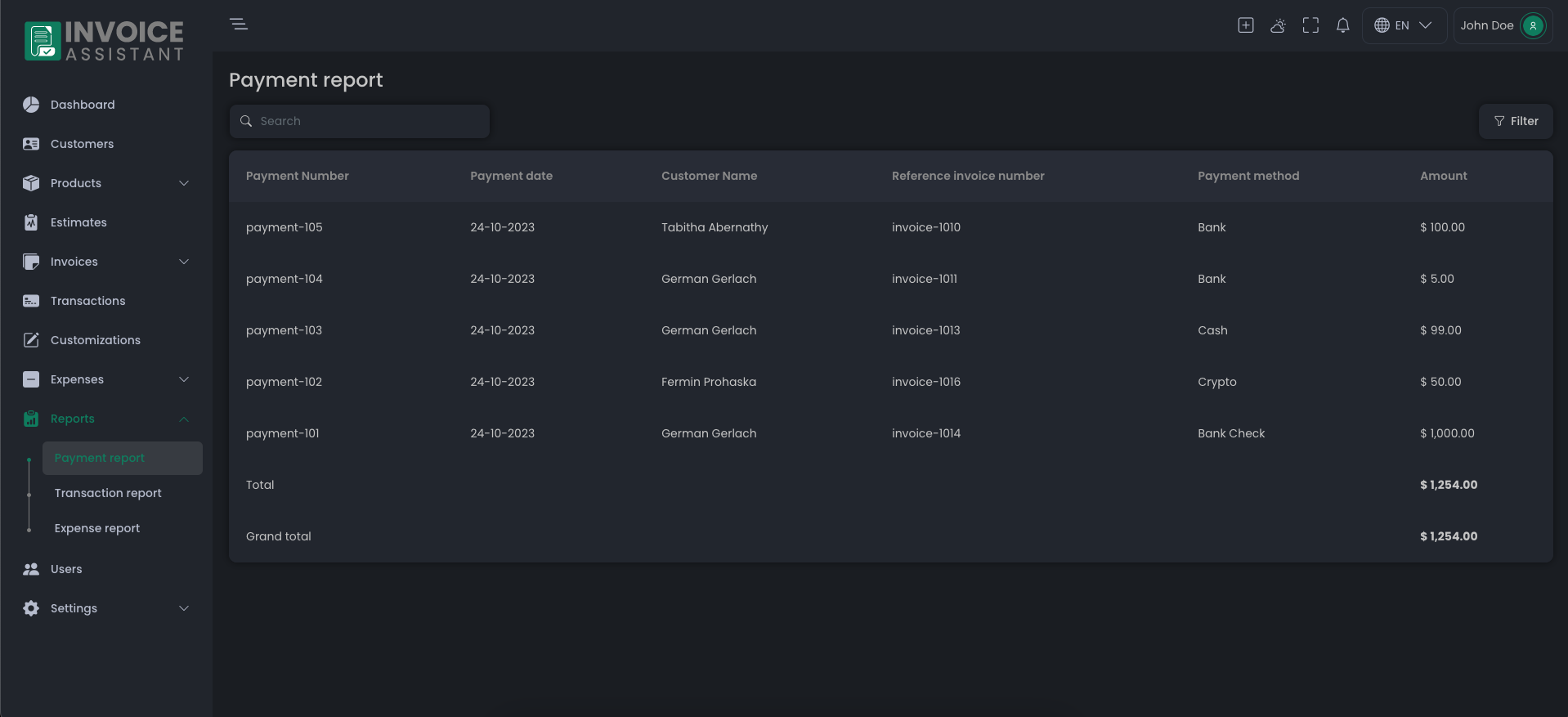
Transaction report
In the Transaction report, you can get a detailed overview of all transactions. Filter report by customer, date range and payment methods.
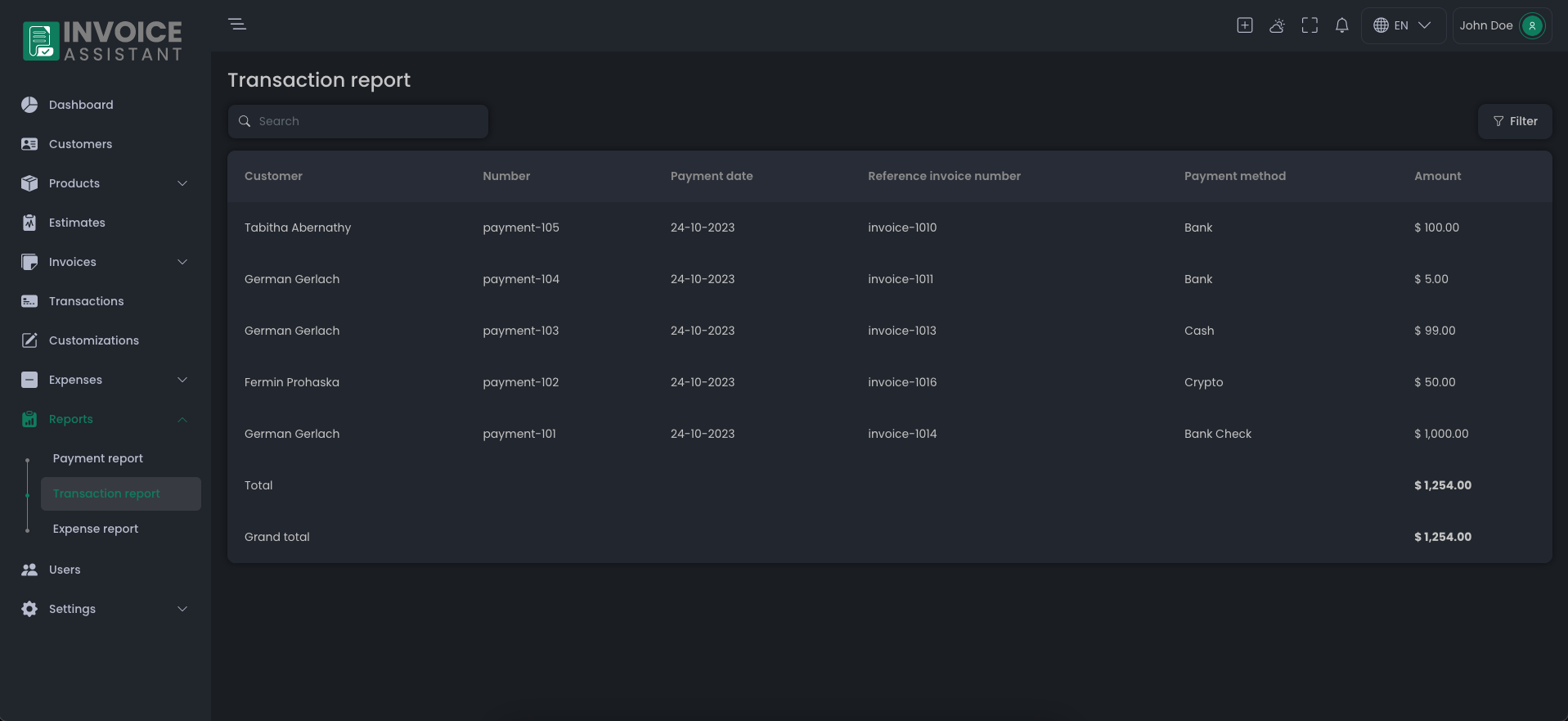
Users management
You can add an unlimited number of users and apply appropriate roles based on permissions. Send invitations to email addresses to add them as application users. Admin can activate or deactivate users, and can user roles from the action menu.
